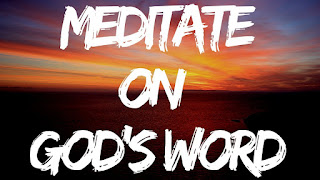KUMBAYAH my Lord
I feel like singing! I need you, Lord, I'm crying and praying, desiring to be in a position to make my calling and election as I wait for you to come! When you come Lord, come by here! A song by The Natural Branches says, "Let my record show that I did my best and I fought a good fight" if it's my time to go. Have mercy on me Oh God.
Psalm 71
1 In thee, O Lord, do I put my trust: let
me never be put to confusion.
2 Deliver me in thy righteousness, and cause me
to escape: incline thine ear unto me, and save me.
3 Be thou my strong habitation, whereunto I may
continually resort: thou hast given commandment to save me; for thou art my
rock and my fortress.
4 Deliver me, O my God, out of the hand of the
wicked, out of the hand of the unrighteous and cruel man.
5 For thou art my hope, O Lord God: thou
art my trust from my youth.
6 By thee have I been holden up from the womb:
thou art he that took me out of my mother's bowels: my praise shall be
continually of thee.
7 I am as a wonder unto many; but thou art my
strong refuge.
8 Let my mouth be filled with thy praise and
with thy honour all the day.
9 Cast me not off in the time of old age;
forsake me not when my strength faileth.
On a historical note, now is an excellent time to remember a
song our mothers and fathers from the
slavery era left for us. Descendants of slaves in the Gullah
Geechee community of Darien in
Southeastern Georgia says Kumbayah means, “Come by here
Lord, come by here.” Full of coded
language we sang it in the children’s church was passed down
to generations after the captivity.
In Gullah, it was a plea to God for help. Analyze this gift
they left for us. Can you unlock this mystery
left to us by our ancestors who were enslaved during the
Middle Passage? Upon an in-depth study,
we find out that this is what it means in Hebrew.
KUM BA YAH - Kum (Qum) means to stand up, arise. Ba means to
come or coming, Yah is the
name of the Most High, “arise come Yah,”
This cute little song we all know well was a cry for help
from our ancestors, trapped in slavery.
Either translation, “come by here Yah” or “arise come Yah”
are pleas for the Father for deliverance.
Either translation is a gift to us, and a plea asking The
Most High to free our ancestors from slavery.
They remembered scriptures that promised Yah would destroy
their enemies when he came. God
promises to return and gather Israel. This is prophesied in
Psalm 50, to take place on that great and
terrible day of the Lord. They remembered that when he came,
he would devour the enemy with fire.
This song they sang so freely referenced a powerful and very
telling Psalm. Matthew 24 said Yah would
send his angels with the sound of a trumpet to gather His
children Israel. This song we thought was
harmless and juvenile hinted at the second coming of our
Messiah. According to Mark 13, the sun and
moon will be darkened. Our ancestors spoke scripture over us
very cunningly.
Compare Psalm 68:4; the highest praise Hallelujah and the
song Kumbayah. If they could have left
but one thing, this was it. It should be a game-changer.
What do you deduce from this comparison?
I'm going to up my game, and praise the Lord!



Comments
Post a Comment